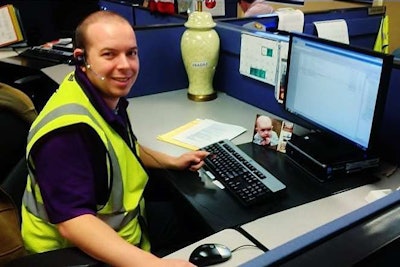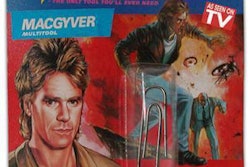
Everyone out there has a bad dispatcher story. Most of us have had to sit and wait on more than one occasion and watch drive time (which is a direct equivalent to money) tick away because of a dispatch error. Anyone who’s been driving for more than a minute has had that one dispatcher who speaks to and treats them like a number on a truck instead of a human being.
The relationship between the dispatcher and the driver is important and difficult to foster without an understanding of what happens on both ends. We’ve had some really poor dispatchers, but we’ve also had some really good ones. It’s like any job, really: there are a lot of people doing it who have no business doing it, but there are some true professionals out there – people who take pride in keeping their drivers happy and profitable.
I recently had the opportunity to have a lengthy conversation with a dispatcher, unusual because my husband is usually the one having lengthy conversations with this particular dispatcher. His name is Tim Bell II, and he’s our dispatcher. He’s also very good at what he does, which inspired me to write a piece about what goes on “behind the scenes” on his end. It’s a lot harder to criticize someone when you know what they’re dealing with.
Bell agrees. His father was a trucker and he’s been in the industry as a dispatcher for five years. He worked in parts and service before that — he’s familiar with all aspects of the business and is currently in charge of a dedicated account with 30 drivers along with an owner-operator board that has 15 drivers on it. Before that, he ran 70 on an owner-op board. He’s a busy guy.
In the course of a regular day he takes between 120 and 130 calls, and makes or returns between 40-50. He enjoys the interaction with his drivers and believes having a personal relationship with them is important.
“You’re dealing with personalities here, you have to talk to them like they’re a human being and not just a truck,” Bell says. “You have guys you talk to every day for whatever reason, but you’ve also got the drivers you don’t hear from and you have to check on them, too. Just because someone is rolling and being quiet doesn’t mean they’re OK.”
When I asked Tim what his biggest peeve about the job is he didn’t hesitate.
“Waiting on other people to do the next step so I can send my driver out and keep him moving,” he says. “I may be able to see the load on the planner’s board, but I can’t just snag it and put it on my driver — I have to ask for it, and sometimes it’s a power trip. On the totem pole, drivers and dispatchers are at the same level.”
While we were on the subject of power trips, I asked him why he thought there were so many dispatchers out there who didn’t share his philosophy on the job.
“There are people who go into it for the wrong reason, just like cops or other authority jobs — they’ve got control. And there are a lot of people doing the job who just don’t understand the business.”
On the other side of the coin, there are drivers who make it difficult for dispatchers by just being unreasonable. Inexperienced drivers often have a distorted view of what the dispatcher is actually supposed to be doing. They’re not your babysitter, they’re your support.
“If I could have 20 minutes with new recruits to sit them down in front of the screen and say, ‘Here’s what happens on my end when you do this,’ I think it would make a huge difference. I think a lot of new drivers quit out of frustration because they don’t understand the chain of events.”
As in any relationship, communication is key to maintaining.
“I need to know what’s going on with my drivers. When I get that call I always think about my Dad being out there and want to treat them like I would want my Dad treated, give them the same help I’d want him to get.”











